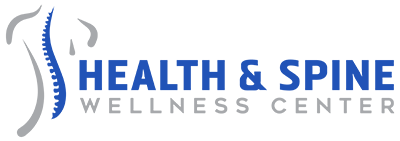Arthritis in Belleville: What Is It, Symptoms, & Types

Arthritis in Belleville is a condition of joint inflammation. It can happen in one or more joints throughout the body. The main places of manifestation of it are: knees, hands, shoulders and hips. There are more than 100 types of arthritis, so it is not a specific term or finding as it can be present in a variety of diseases.
As an inflammation, arthritis presents swelling of the joints — local pain, redness, and a rise in temperature. These signs make it possible to differentiate arthritis from arthralgia, as only joint pain is present in the latter, a typical manifestation of other groups of diseases.
In an arthritis setting, the time of onset of inflammation and the number of affected joints are considered to classify it. Thus, it can be acute or chronic — evaluated for how long the condition was active — and polyarticular or monoarticular — when it is in more than one joint and when it appears in isolation, respectively.
What Causes Arthritis In Belleville NJ?
As a common finding in many different diseases and conditions, there are many causes of arthritis. Usually the origin of arthritis falls into one of the following categories: autoimmune disease, trauma, neoplasm, infection (septic) and metabolic. The main diseases that cause arthritis are:
- Gout: a disorder of metabolic origin. In this situation, there is an increase in the concentration of uric acid in the blood, which is precipitated in the form of crystals in the joints. The immune system is activated to fight this substance, triggering the entire picture of the inflammation in the joint.
Gout is an extremely painful acute monoarthritis. It can undergo a chronification process.
- Pseudogout: also called chondrocalcinosis. Like gout, it is an acute monoarthritis of metabolic origin. The cause of the disease is similar, since pseudogout accumulates calcium pyrophosphate crystals in the joints.
- Rheumatoid Arthritis: is an autoimmune disease that affects joints. Usually classified as chronic. The immune complex is released in the joints, triggering an inflammatory condition.
- In addition to severe inflammation, rheumatoid arthritis can attack the synovial membrane, causing synovitis. When advanced, there may be tissue destruction and thickening of the synovia, with the formation of Pannus. It is usually seen in the proximal interphalangeal joints—the base of the finger.
- Psoriasis: a polygenic disease influenced by environmental factors. In addition to typical skin lesions, psoriasis can cause psoriatic arthritis. Mainly affecting the distal phalanges, with nail lesions.
- Septic: is an acute monoarthritis caused by an infection in the joint. It can be caused by contamination during surgery or by an initial skin infection, for example. The most common pathogen is Staphylococcus aureus bacteria, but viruses and fungi are also possible causes. In septic arthritis, a common symptom is a fever.
- Osteoarthritis: Also known as osteoarthritis, which is a type of arthritis. It is classified as chronic polyarthritis. In osteoarthritis, there is a reduction in the space of the joint, due to wear of the cartilage present. Thus, the bones end up having contact with each other, causing a lot of pain and functional loss. Very associated with age.
What are the symptoms?
The main symptoms are: pain, swelling and redness in the joints, accompanied by a rise in temperature. In addition to these, each type of arthritis has specific symptoms, such as the fever in septic arthritis and the skin lesions characteristic of psoriatic arthritis.
Diagnosis
Diagnosis depends on the cause, and can be made by radiography, observing typical lesions of each arthritis. However, joint puncture is efficient in ruling out the septic cause, and allows the diagnosis of gout or pseudogout when crystals are observed. In autoimmune causes, the diagnosis can be made by clinical criteria associated with immunological tests.
Treatment
Treatment also varies depending on the initial cause. In metabolic disorders, treatment can be done with drugs such as colchicine and allopurinol, in addition to anti-inflammatory drugs. In case of septic arthritis, it is done with antibiotics. In autoimmune origins, the treatment is based on anti-inflammatory drugs, and some immunobiological drugs can be used.
Monday
9:30am - 1:00pm
2:30pm - 7:00pm
Tuesday
Closed
Wednesday
9:30am - 1:00pm
2:30pm - 7:00pm
Thursday
9:30am - 1:00pm
2:30pm - 7:00pm
Friday
9:30am - 1:00pm
2:30pm - 7:00pm
Saturday & Sunday
Closed
Health & Spine Wellness Center
544 Washington Avenue
Belleville, NJ 07109

